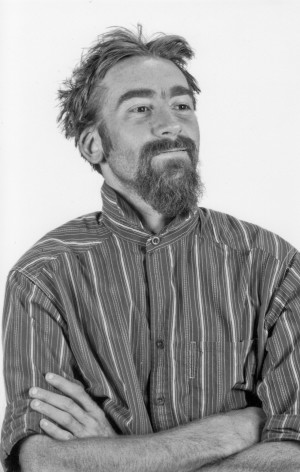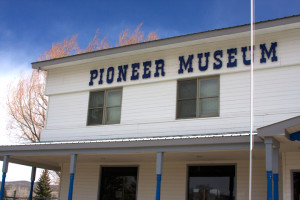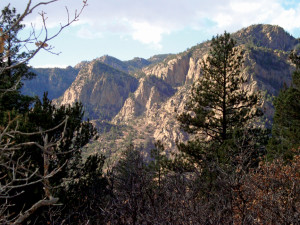By Jennifer Welch
Farming is often referred to as a “profession of hope.” I have spent the past year of my life learning exactly what this means. Most business owners wouldn’t enter into a field with as many uncontrollable variables as farming has. Most businesses are not even designed to rely on sheer optimism as the main driving force. And as such, Farmers live a life of optimism, and the only constant in our business is this: Some days are good, some days are bad.
Goldie’s calf wasn’t due to arrive for three more weeks. As I walked out towards the lower paddock, however, I could tell that something was wrong. The previous night had brought with it a heavy spring snow, and most of the ground was still white and very wet. I could hear our Scottish Highland cow bellowing in short, low bursts and as I came closer, I saw him. Had Goldie not been acting so concerned, I might not have seen the white bull calf lying motionless in the heavy snow. Without skipping a beat, we had him in by the fire wrapped up in blankets. When it became clear he was too weak to nurse, I placed a stomach tube down his throat so we could fill his sunken belly with the colostrum he so badly needed. Then we waited with bated breath … and hoped.
Almost a year later, I look back on those first days of his life and it brings a smile to my face and a warmth to my heart. We were able to avoid a bad day, albeit very narrowly. Now you can find the white bull calf frolicking in the paddock or sunning by the creek. He also has a name: Alan Blodwen. Double names are typical of Scottish Highland cattle, and his roughly translates to mean ‘Handsome White Flower.’ One day, while sitting in the paddock with Alan, I wrote him a variation on a haiku:
Who could claim to have known
as I watered the earth, bare
that a flower would rise
from this desolate land
to carry my heart forever.
I have spent Alan’s entire life fiercely loving him and hoping for him. I hoped he would make it through that long first night in my arms. I hoped that as a bottle baby, he would grow as vigorously as a calf that had been left on his momma’s teat. I hoped above all hope that he would live out his days as our herd sire, bringing precious new life into the fold. And even though it is the nature of my profession, it would appear, this time, that hope simply is not enough.
I could explain to you the reasons that bottle babies do not make good, safe bulls to be around. I could tell you that Alan’s small size and slow growth rate do not bode well for good reproductive qualities. I could lay out exactly how much it would cost annually to keep a pet steer. None of these things will make what I am about to say any easier to hear. The truth is not easy. The truth is not hard. The truth simply is, and it is this: Alan Blodwen will be slaughtered for meat.
A good friend was visiting the farm recently, and he asked me if it was difficult to raise our own meat animals. First, I answered simply, “Yes.” Then I continued to explain the case of Alan Blodwen and how I could not offer his meat up for sale because no one could possibly give me enough money to spill his blood. I followed by saying that he would be slaughtered as a beef steer, but that he would end up on my plate and my plate alone. Every time I spoke his name, my voice cracked. Every time I sealed his fate with my words, tears began to well up in my eyes. It’s the kind of thing that could make you feel silly, except that in that split second, I came to a profound realization: I would rather eat an animal whose loss brings me suffering and heartache, than an animal who has suffered and lived heartbroken. And one year from now, when I am preparing to deliver Alan’s fate, it will not be because I have lost hope. Indeed, it will be only because the hope is alive and well within me. And with an animal such as Alan, deep in my heart, I know the hope will never subside.



